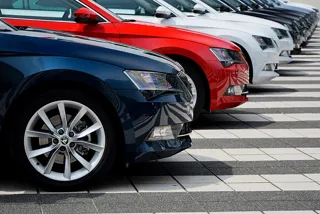Automotive components business Unipres has reduced its fleet CO2 emissions by one million kilograms since introducing a salary sacrifice scheme.
Unipres took delivery of its first electric vehicle (EV) through the scheme in December 2012 and the 1,000-employee business has since seen carbon emissions on new additions to its salary sacrifice fleet fall to an average of just 11g/km of CO2.
Over the last decade the company’s carbon footprint from its employees’ personal motoring and commuting would have measured around 1.8m Kg, had those who opted for its salary sacrifice scheme remained in their original cars.
With the Fleet Evolution scheme in place, carbon output has totaled around 0.76m Kg of CO2, a saving of over around 1,000 metric tons of greenhouses gases.
Unipres UK now operates its vehicle fleet entirely on a salary sacrifice basis provided by Fleet Evolution, with all new vehicles joining the fleet currently being EVs or plug-in hybrids (PHEVs).
Employees from machine operators to the managing director select vehicles through the scheme and, to encourage EV and hybrid uptake, Unipres has added several charge points in the corporate car park so that staff can recharge their vehicles while at work.
When it comes to vehicle choice, the Tesla Model Y is currently the most popular BEV while the most popular PHEV is the BMW 530e.
Andrew Fawell (pictured), Unipres director of finance and admin, said: “The salary sacrifice model works very well for us, especially as Benefit-in-Kind tax rates are currently so beneficial, and it clearly helps us to meet our CO2 and corporate responsibility targets as shown by the CO2 savings we have achieved.
“At the same time, Fleet Evolution provides excellent service levels and takes away all the issues associated with the day-to-day running of our fleet.”
Andrew Leech, founder and managing director of Fleet Evolution, said that the Unipres UK fleet was a “shining example” of how salary sacrifice could dramatically reduce the corporate carbon footprint for businesses and help with carbon reduction targets.
He added: “EV salary sacrifice schemes are very carbon efficient as they promote low carbon vehicles across the board within a low tax environment. They are also an extremely valuable benefit to employees due to their convenience, ease of use, absence of upfront payments and value for money.”






















Login to comment
Comments
No comments have been made yet.